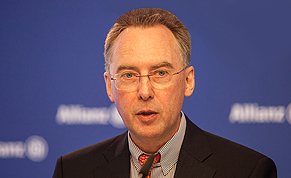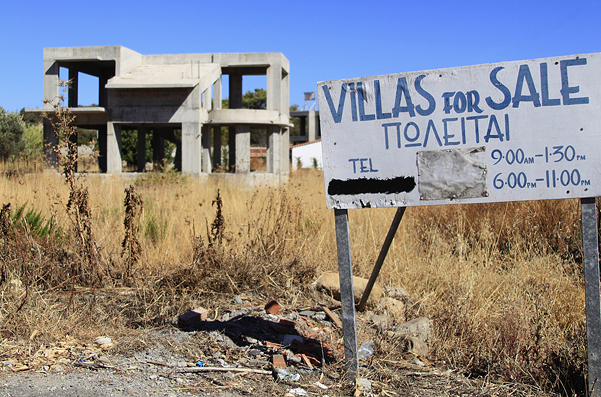The Allianz Group is Europe's largest insurer. In order to fulfill the liabilities resulting from its diverse insurance business, the company has assets totaling more than 500 billion euros, largely invested in bonds. Thanks to the global asset manager PIMCO, the group, which operates in more than 70 countries, also ranks among the leading providers of investment solutions for institutional and private investors.
Mr. Wemmer, the low interest rate policy being pursued by all of the world's major central banks means that the return on your huge investment assets is increasingly dwindling. To what extent is the Allianz Group a victim of the interest rate situation?
Dieter Wemmer: The insurance sector and its customers are not the only victims. All of the institutions and individuals that want to save and put money aside for the future are being hit by the policy pursued by the central banks. We at Allianz, however, have enough opportunities open to us to combat this trend. In the P&C and liability insurance segment, we are structuring our prices in such a way that the shrinking share of the return generated by investment is offset by a higher underwriting margin.
So are critically-minded investors right when they say that insurers are exposed to huge interest rate and valuation risks?
It is true that the financial market is being manipulated by the central banks. Although terms like "quantitative easing" and "financial repression" sound more moderate, this is essentially what they boil down to. But it will be tricky to break with the current monetary policy any time in the near future, especially since Japan has now also taken interest rate measures to join the global race to secure export opportunities by maintaining a currency that is as weak as possible.
What opportunities is Allianz exploiting to divert its own investments into areas that promise higher returns?
We have sufficient investment expertise to deal with these difficult market conditions. In addition to our own assets, which total a good 500 billion euros, our PIMCO and Allianz Global Investors entities manage combined customer funds to the tune of 1500 billion euros. This puts our group in second place worldwide when it comes to the investment business. We are making the most of this strength.
Can you give us a few examples?
Every year, we re-invest around 80 billion euros of our insurance assets. In the period leading up to 2015, we want to invest at least 3-4 billion euros of this amount in real assets that we expect to generate sufficient returns and, initially, provide protection against inflation, year in year out. Large-scale infrastructure objects, such as shopping centers, gas networks, wind farms, sections of highway and even prisons are interesting options. The capital shares in these projects come in at between 100 million and 500 million euros. The banking sector has been forced to abandon the financing of long-term projects like these, also due to the capital requirements associated with Basel III. This leaves major insurance companies and pension funds as the potential investors.


